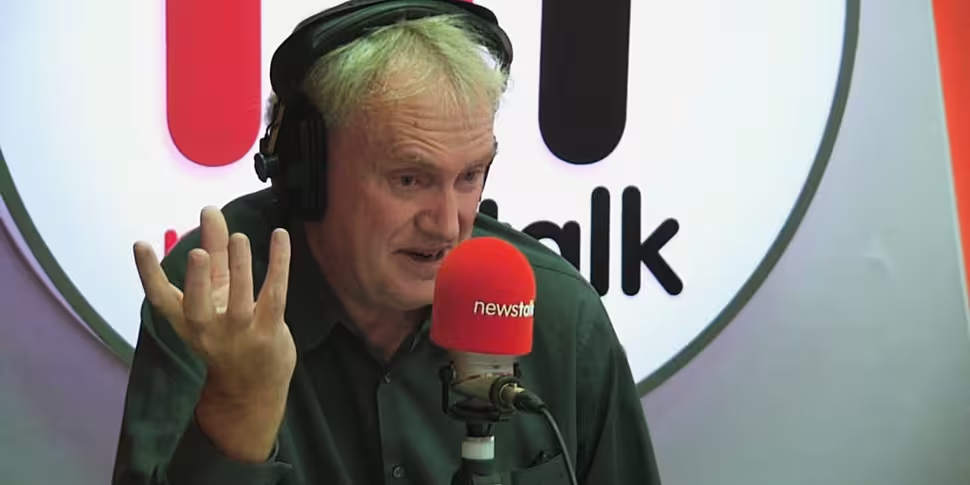Professor Luke O'Neill says Ireland could reach the pandemic 'endgame' sooner than expected if the gap between Pfizer vaccine doses is increased.
The Trinity College immunologist said the target of vaccinating 80% of adults could be achieved ahead of schedule if the doses are spread out.
We’ll find out this week if there’s going to be a change to the way the Pfizer and Moderna mRNA vaccines are administered.
Currently, second doses of those vaccines are administered three to four weeks after the first.
Health Minister Stephen Donnelly says extending the interval to eight weeks or more is being 'seriously looked', as there's been an 'extraordinary' reduction in serious illness among people who've just received the first dose.
A recommendation is expected in the coming days.
Professor O'Neill told The Pat Kenny Show the change would make sense.
He said: "We’ve been saying this for a while now. The UK is doing it… the Finns are doing it.
“What it means is more vaccine in people’s arms more quickly.
"You [still] get your second shot anyway - a gap of three months wouldn’t make that big a difference to how effective this vaccine is going to be.”
He pointed to figures reported in the Business Post which suggest the 80% target could be achieved a month ahead of schedule if the dose interval was increased.
He said: “The endgame gets closer if we get the vaccine out as quickly as we can. I can’t see them not going along with this - they’re still deliberating, but we’re all hoping they will extend that gap.
“Micheál Martin might win, basically - can you imagine if by the end of May he meets his 80% target, and that’s four weeks ahead of schedule? That’s a great success - that’s why I suspect they will extend the interval between the two doses.
“It’s all heading in the right direction, and then never forget there are three more vaccines about to be approved in Europe - there’ll be even more supply then. The future looks pretty bright in terms of vaccine supply.”
However, Professor O'Neill said he understands why officials may be taking their time to make the call, as they need to ensure there's sufficient supply available for first and second shots.
He also noted there'll be some immuno-suppressed people who'll likely need to get their second shot sooner than two or three months.
He added: “It isn’t as simple as ‘let’s all get the vaccine out quickly’ - I understand their slight caution on this one for Ireland specifically.
“I have no doubt we will have [supply] - the news gets good on that all the time. Pfizer are basically turning every factory they can find almost in America into a manufacturing plant, as that vaccine is so effective.”
Johnson & Johnson decision
Professor O'Neill also said he has 'no doubt' the Johnson & Johnson vaccine will come back into use in both the US and EU.
The US has paused the use of the jab over concerns around very rare cases of blood clotting in people who'd received the one-shot vaccine.
Johnson & Johnson itself, meanwhile, has temporarily delayed the EU rollout of its jab while the issue is investigated.
Professor O'Neill believes it will ultimately be recommended for use in over-30s, with the risk of clotting listed as a very rare side effect.
He said: “The fact this vaccine can kill you - even if it’s one in a million - is still something to be aware of.
“The most important development last week was a treatment for this clotting… it’s called IVIG [intravenous immunoglobulin], which hospitals have routinely.”









